 The Mormons continue to maintain the IGI, so that their members can retrospectively baptize all of their ancestors into their faith. There are special temples allocated to this practice.
The Mormons continue to maintain the IGI, so that their members can retrospectively baptize all of their ancestors into their faith. There are special temples allocated to this practice.
It is founded upon the belief that individuals have the opportunity to accept the true teachings of Jesus Christ, regardless of whether they are in this world or the next.
As the Church was only founded in 1830, this leaves a lot of ancestors who may have been Catholic, Protestant or not even Christian during their lives. Their Mormon descendants submit their names as an act of love. Once the priest has performed a baptism-by-proxy on the dead, then the deceased will be able to gain access to Heaven.
Naturally this has caused some outrage amongst other denominations. In 2001, the Vatican's Congregation for the Doctrine of the Faith ruled that Mormon re-baptisms of deceased Catholics could not be held as valid. As far as they are concerned, devout members of the Catholic Church will remain so, regardless of posthumous attempts to incorporate them into another faith.
Nevertheless, the Holy See took the practice seriously enough to wish to hinder Mormons in their family history research. In 2008, the Vatican Congregation for Clergy sent a letter to all of its bishops. It expressly forbade access to Catholic records (birth, marriage and death registers specifically) to any member of the Church of Jesus Christ of Latter-Day Saints.
The idea was to stop Catholics being included on the IGI by refusing to allow Mormons the information necessary to index them. This was a little like slamming the stable gates after the horse has bolted, as hundreds of thousands of them are already on it.
Other religions have been even more proactive in seeking to remove their deceased members from the IGI. In 1994, controversy was sparked when it was discovered that the index included the names of Jews, which had been transcribed from two Holocaust memorial registers. Dying in the death camps for their Judaic faith and heritage, millions of people had now been re-baptized as Mormons.
A year later, an agreement was signed that only Jews who were direct ancestors of living Mormons could be baptized by proxy. Members of JewishGen have continued to monitor the situation and they claim that the promises were not honored. Jews continue to be added to the IGI and re-baptized according to the tenets of the Church of Jesus Christ and the Latter-Day Saints.


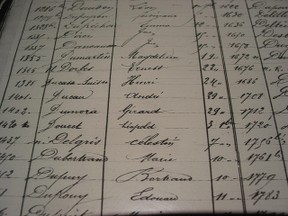 The International Genealogical Index (IGI) was created by The Church of Jesus Christ of Latter-Day Saints.
The International Genealogical Index (IGI) was created by The Church of Jesus Christ of Latter-Day Saints.
 The Mormons continue to maintain the IGI, so that their members can retrospectively baptize all of their ancestors into their faith. There are special temples allocated to this practice.
The Mormons continue to maintain the IGI, so that their members can retrospectively baptize all of their ancestors into their faith. There are special temples allocated to this practice.


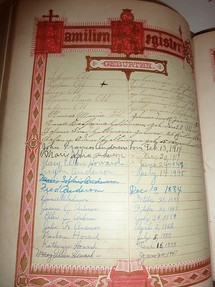 There are over 12 million entries in the IGI, but it should always be approached as a work in progress. The Mormon Church would love for this to provide comprehensive coverage for every person who ever lived. This isn't feasible.
There are over 12 million entries in the IGI, but it should always be approached as a work in progress. The Mormon Church would love for this to provide comprehensive coverage for every person who ever lived. This isn't feasible.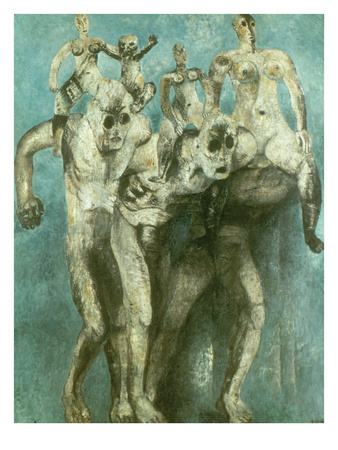




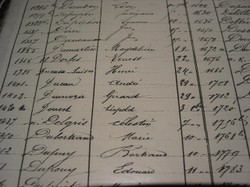

 St Tydecho's Churches in West Waleson 09/03/2014
St Tydecho's Churches in West Waleson 09/03/2014
 Goodies for an Outlander Premiere Partyon 03/06/2015
Goodies for an Outlander Premiere Partyon 03/06/2015
 Holocaust Memorial Day Interview with Rainer Höss, Grandson of Rudolf Architect of Auschwitzon 01/24/2015
Holocaust Memorial Day Interview with Rainer Höss, Grandson of Rudolf Architect of Auschwitzon 01/24/2015
 Romantic Valentine Gifts for an Outlander Fanon 01/16/2015
Romantic Valentine Gifts for an Outlander Fanon 01/16/2015

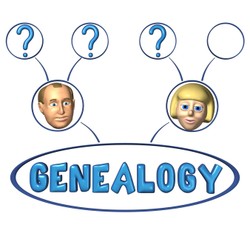
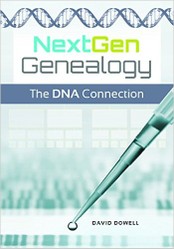
Comments
As a genealogist, I love that the IGI exists, but that story just made me cringe. Simon Wiesenthal and Elie Wiesel are both famously Jewish, so it certainly goes against the 1995 agreement between the two religions to have them on the list.
Have you heard about Simon Wiesenthal's parents being baptized by the Mormon church http://www.bbc.co.uk/news/world-us-ca...
Thanks for your comment, Humagaia. I agree that it's a good starting point. I've spent many, many hours in first the microfiches, then the on-line database. For years, it was the main source of information for anything in genealogy outside your own area.
As a Wiccan, I'm also quite apathetic about the afterlife issues, though I do understand why other Abrahamic religions might have objections.
The IGI is a good starting point for your family history search - especially if someone else has done much of the donkey work. However, as you say, all data should be scrutinised and cross-referenced with other sources before it is taken as Gospel. As for it being used by Mormons to retrospectively baptise those on the list - since I have no religious belief, what harm can come of it? It is just another method of control perpetrated by a church - what's new, get over it, it has no effect on your life - or death.